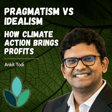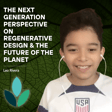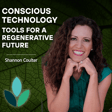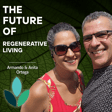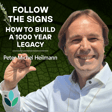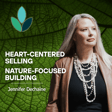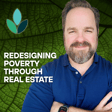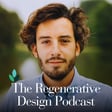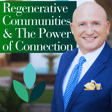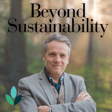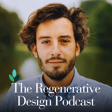
EP30: Dolf De Roos - Building Wealth by Healing Land
“We’re losing the ability to think. Every waking moment is now consuming information… but we’re not thinking. We’ve stopped becoming creative. And my biggest fear for the new generation coming through is that they’re not thinkers, they’re not innovators.”
Real estate can be a tool for regeneration—not just profit. In this episode, we explore how land and buildings can be transformed to restore ecosystems, unlock creativity, and generate lasting value. Whether it’s converting sheep farms into vineyards or office buildings into AI data centers, this conversation reveals how design and innovation can turn real estate into an engine for ecological and economic resilience.
Dolf De Roos shares how he’s used real estate to regenerate deserts, spark local economies, and increase property value without heavy spending. From coffee shop installs to methane-powered dairy farms, his examples reveal how vision paired with practicality can create major impact.
Dolf De Roos is a world-renowned real estate educator, author of 23 books, and one of the top 20 real estate teachers globally. With a background in electrical engineering, he blends science, finance, and creativity to change how we see land and possibility.
Learn more & connect:
https://www.dolfderoos.com/homepage-a
101 Ways to Massively Increase the Value of Your Real Estate without Spending Much Money
Explore these valuable resources to further your journey in regenerative design:
Discover more about Regenerative design at Paulownia Landscape Architects. https://www.paulownia-la.com/.
Dive into the Twelve Laws of Nature and unlock the secrets of harmonizing with our planet at https://www.12lawsofnature.com/.
Fulfill your garden aspirations with expert guidance from the Garden of Your Dreams masterclass at https://www.gardenofyourdreams.com/.
Ready to take actionable steps towards your dream garden? Book a complimentary 30-minute training session with Matthieu for immediate results: https://calendly.com/garden-of-your-dreams.
